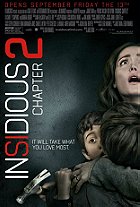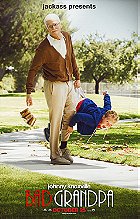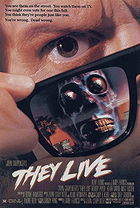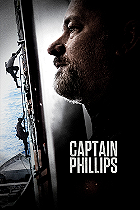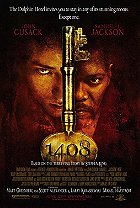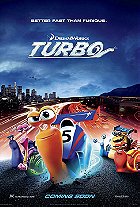At its inception, Planes was designed to be a straight-to-video picture, with Disney seeking to cash in on the merchandising success of Cars 2 with minimal effort. A theatrical release was eventually spearheaded, but it's unclear exactly why. Impressive (and expensive) voice cast notwithstanding, Planes is a straight-to-video feature from top to bottom, with underwhelming animation and awful writing. It literally feels as if the screenplay was regurgitated by a computer, as the dialogue is tin-eared and plot points are so by-the-book that no amount of slick visuals can compensate for it. It's utter wank, a thoroughly disposable kiddie flick aimed at the simplest audience possible, and it contains none of the storytelling sophistication or emotional resonance of Pixar's usual output. All the goodwill that Disney instilled with last year's animation gem Wreck-It Ralph has evaporated.

In the sleepy town of Propwash Junction, Dusty Crophopper (Dane Cook) is a plane who dreams of bigger things, aspiring to become an ace air racer despite the obvious limitation of being a crop duster. But Dusty gets help from his friends, bringing in fuel truck Chug (Brad Garrett), forklift mechanic Dottie (Teri Hatcher) and warplane vet Skipper (Stacy Keach) to train and nourish him. Accepted into the Wings Around the Globe Rally, Dusty looks positively ill-equipped to take on his fierce opponents, including the arrogant Ripslinger (Roger Craig Smith), Indian champ Ishanti (Priyanka Chopra), and Mexican flyer El Chupacabra (Carlos Alazraqui). Dusty becomes the subject of ridicule and jokes, but he begins to realise his potential, emerging as a major competitor as the race around the world takes shape.
The screenplay is credited to Jeffrey M. Howard, but if he was paid anything for his efforts on this malarkey, Disney was too generous. There's not a modicum of wit or heart to be seen here; the movie is a mishmash of cultural stereotypes, lazy plane-centric wordplay and bathroom humour, rendering it a special kind of awful. Planes is a victim of awkward structuring, as well. With the story closing at around the 85-minute mark, the movie ploughs through its narrative with tone-deaf rhythm and little cohesion. It takes all of half an hour to reach the major race, whereas a more skilful movie would spend at least an hour building up to the climactic event. Thus, none of Dusty's achievements feel earned. He manages to make the qualifying race without any practice or skill-honing, and his "training" for the race literally amounts to a five-minute montage before he's deemed to be ready. As a result, the movie is completely flat throughout, and there's no connective tissue to allow Planes to soar in any meaningful way. It's also just not funny at all.

With the climactic world race commencing before the halfway mark, it grows very tedious very quickly. Of course, the fact that the planes are going around the world inherently means it will be a long race, but Planes fails to do anything interesting to justify its length. Thus, we get random detours like Dusty helping El Chupacabra find love, and a very strange scene in which Dusty is rescued by the Air Force in the middle of the ocean. Unfortunately, the movie neglects the most important aspect of its story: making Dusty a likeable, sympathetic character. Because Planes treats its set-up as homework, we're never given a compelling reason to care. The fact that Dusty is extremely underdeveloped is most obvious in the character's fear of heights - in a better movie, Dusty's personal demons would be handled in a profound way, but here it's only brought up in three scenes: when it's introduced (and Skipper doesn't even think he needs to overcome it before the race), when he gets scared and fails to overcome it, and later when he finally does overcome it out of nowhere. It's jarring, and as a result, this ostensibly major character arc gains no traction. It doesn't help that Dane Cook is completely ineffective in the role, failing to give Dusty any personality or spunk. John Cleese is also on hand here to voice a plane...but he's given nothing to do. Planes is so bad that even Cleese can't salvage it.
Even Pixar's harshest critics must admit that the Cars pictures are easily the studio's weakest, with Cars 2 in particular an outright disaster. But despite lukewarm box office for both movies, Disney made a killing from toy sales. Indeed, thanks to toys, the Cars movies grossed not just millions but billions, and Disney visibly hoped to recreate this immense success with Planes. Thus, the decision to create this quickie spinoff was motivated purely by money rather than artistry (if it was about artistry, we'd have The Incredibles 2 by now). It's hardly surprisingly, then, that Planes walks and talks like a toy commercial, aiming to fill the frame with as many colourfully designed characters as possible. For fuck's sake, even cinemas were selling Planes toys while it was being screened.

The only positive thing that can be said about Planes is that it's marginally better than Cars 2, which is a rotten-to-the-core sequel without any redeeming qualities. It's also fortunate that Planes is so short. After all, judging by how awful every frame of this movie is, if this particular creative team attempted proper character development, it might've resulted in an even more agonising creation. With underwhelming animation, no laughs to be had, and nothing interesting for adults, Planes is a total washout.
2.8/10
 Login
Login
 Home
Home 183 Lists
183 Lists 1671 Reviews
1671 Reviews Collections
Collections
 0 comments,
0 comments, 



